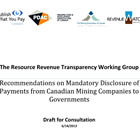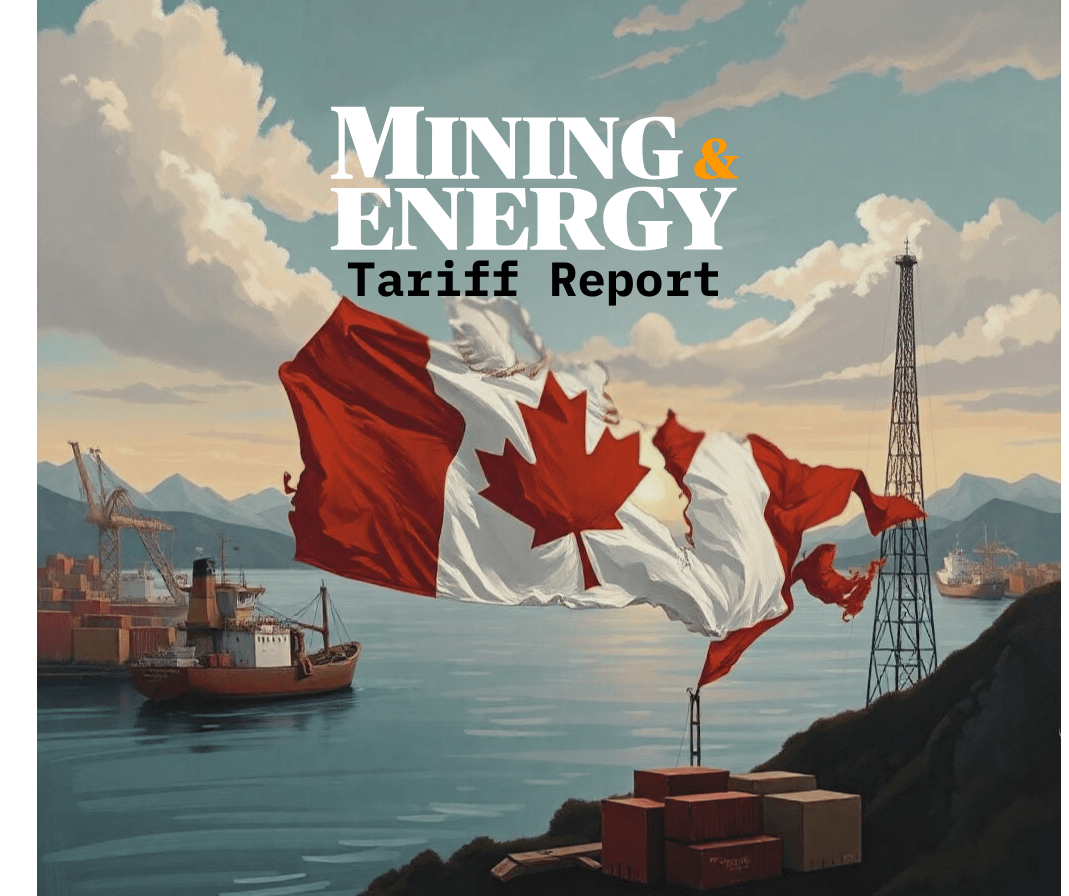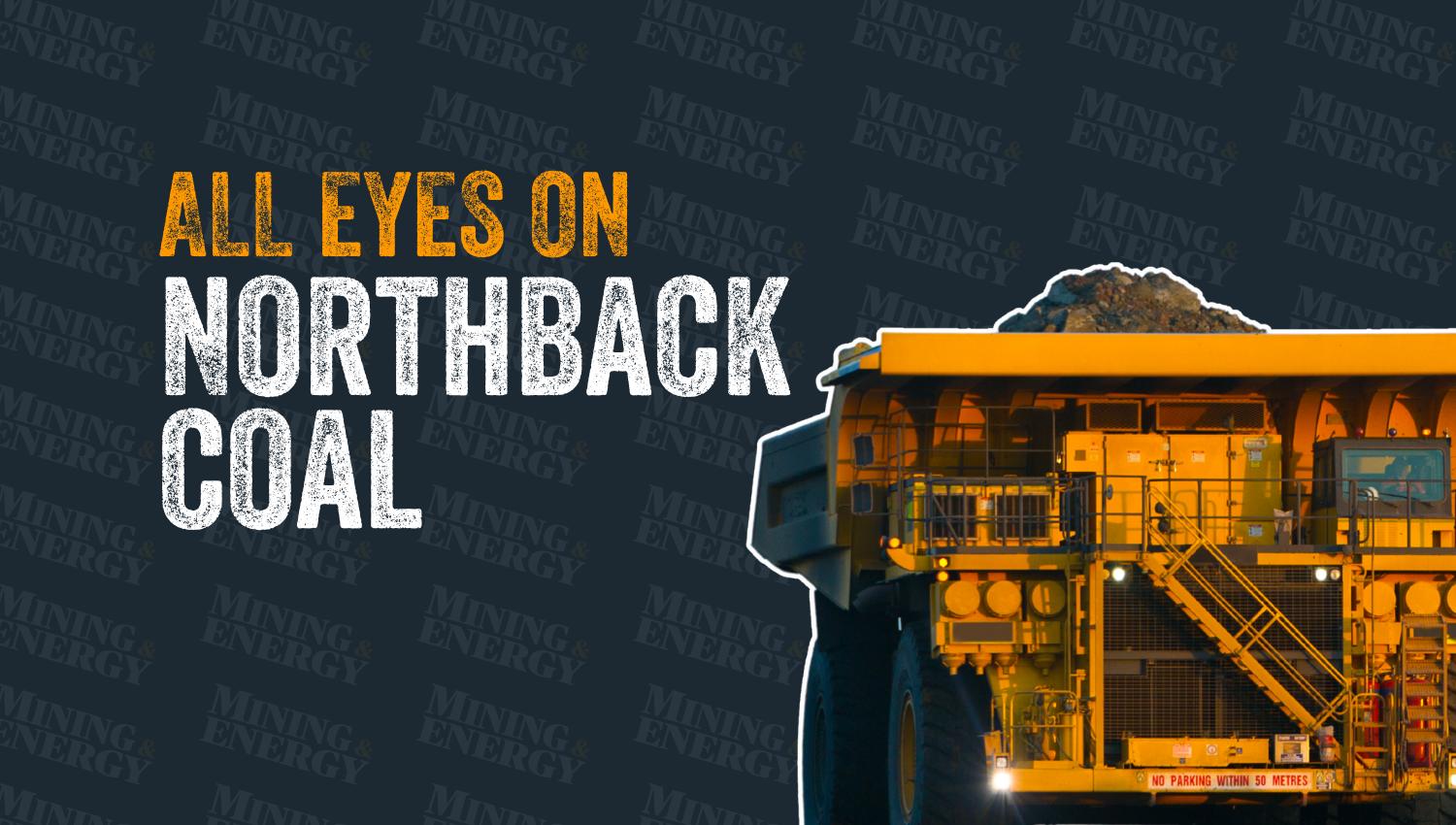Draft recommendations on implementing mandatory reporting standards released

On June 14, 2013, the Revenue Resource Transparency Working Group released its draft recommendations on implementing mandatory reporting standards for
On June 14, 2013, the Revenue Resource Transparency Working Group released its draft recommendations on implementing mandatory reporting standards for Canadian mining companies. — Photo courtesy PDAC.
June 14, 2013 was a big day for the Resource Revenue Transparency Working Group. After months of hard work, the working group released its draft recommendations on implementing mandatory reporting standards for Canadian mining companies for public comment.
This document represents over nine months of collaborative efforts by the working group whose members are: the Mining Association of Canada, the Prospectors & Developers Association of Canada (PDAC), Publish What You Pay-Canada and the Revenue Watch Institute.
PDAC's executive director, Ross Gallinger, said the whole process came about after PDAC was approached by the Revenue Watch Institute. Similarly, the Mining Association of Canada was also being approached by Publish What You Pay-Canada to have a similar conversation.
"So we all got together and decided as a group that we'd like to pursue this and figure out how we could build a 'made-in-Canada' framework approach to implementing a mandatory piece for transparency for the sector," said Gallinger. "and to do this with an opportunity to talk about the economic benefits associated with the sector and our civil society partners."
Gallinger said they were looking to make payments to the government transparent so that communities understand what government is receiving and to have those conversations about how the money is being used. He said that was sort of the genesis of the process and soon after, they established a memorandum of understanding so they could key out what they were trying to achieve, what the goal was and how they could work together.
The draft was released June 14 on the heels of Prime Minister Stephen Harper’s pre-G8 announcement that Canada will establish new transparency standards. The importance of demonstrating financial benefits in terms of the taxation associated with it is huge, according to Gallinger.
"Too often, in absence of information, people think we are paying no tax and there are no financial benefits accrued to the state," he said. "This framework will help in terms of identifying those for civil society and educate them on how money is being spent and how it comes back into communities and benefits people situated near extraction operations."
An example of a recommendation in the draft is to look for equivalency-if someone is reporting in one jurisdiction, they should not have to do something different somewhere else. Another recommendation is to look at both producing meaningful information for communities but also to ensure no undue burden to the sector in compiling and reporting information.
Now that the draft has been released, it is in the public's hands. The working group has conducted a number of consultations with both civil society and the industry and now it's open for anyone and everyone to comment. The consultation period has been extended until September of 2013.
"We'll be taking that feedback and working with government," said Gallinger. "With their commentary around the announcement and the margins of the G8, there is a commitment by them to work with this working group. Our efforts will be to bring other parties on board in terms of the groundwork that we've laid and to use the work we've done to inform and adopt the process moving forward."
According to the working group, in the U.S., disclosure requirements were passed in 2010 under section 1504 of the Dodd-Frank Act, which compels publicly-listed companies to report on a country-by-country and per-project basis. This week, the EU Parliament has passed similar legislation which also applies to large, private companies and forestry.
Approximately 60 per cent of the world’s mining companies are registered in Canada, and more than 1,000 Canadian exploration companies are active in 100 countries – most of which have their only public listing in Canada. Canadian stock exchanges, the Toronto Stock Exchange (TSX) and TSX Venture in particular, host the lion’s share of the total global value of mining sector market capitalization, and mining equity capital raised.
"This has been a wonderful process because it is being built from the ground up," said Gallinger. "Finding that intersection between civil society and the extraction sector has been amazing. It's uniquely made in Canada. You don't generally see these types of collaborations occurring around the world. That's why this is so exciting and innovative and we are so pleased about the contributions from civil society. We believe they appreciate our contributions as well. It has been a great partnership so far."
To view the draft recommendations and a background document, click here.



